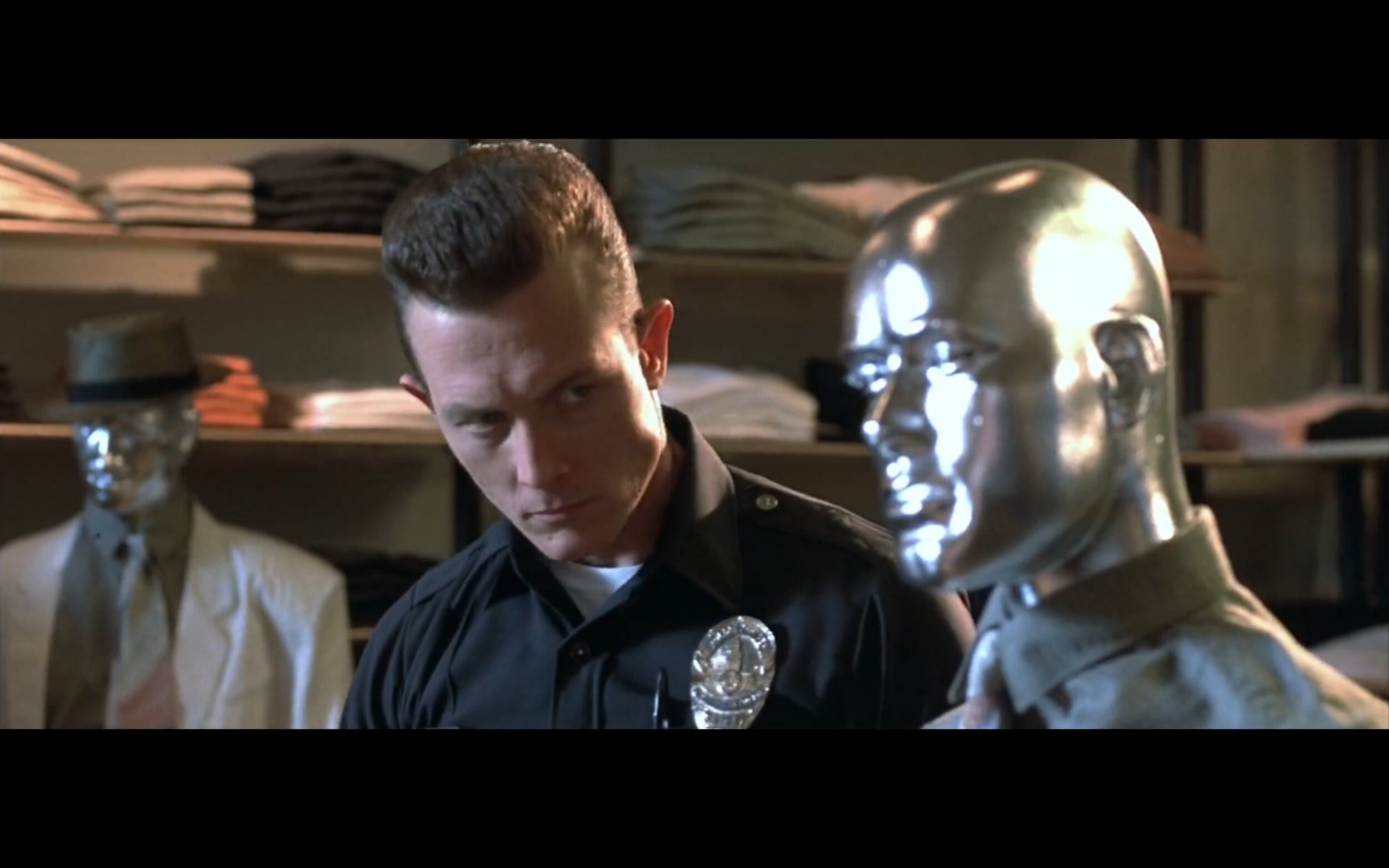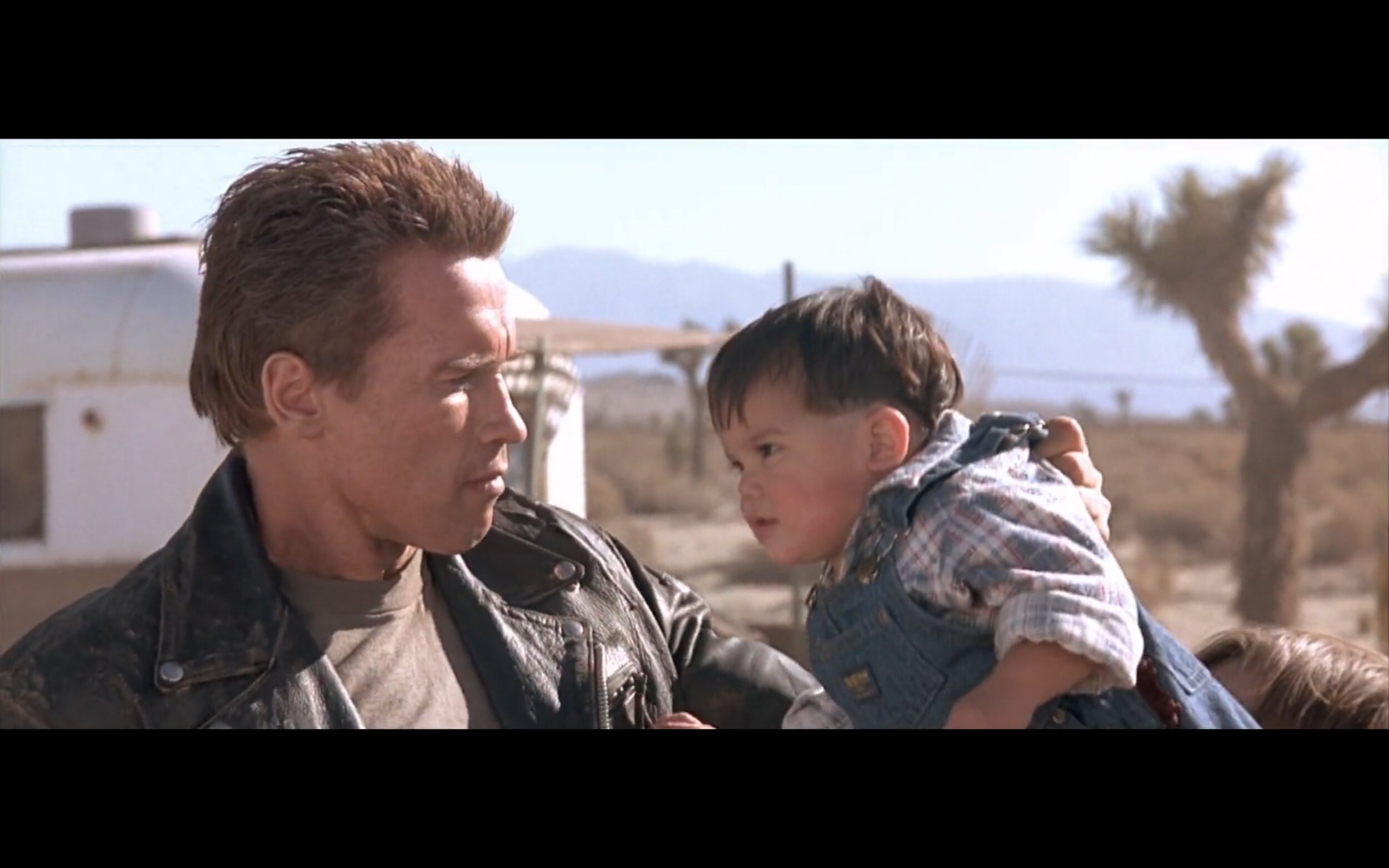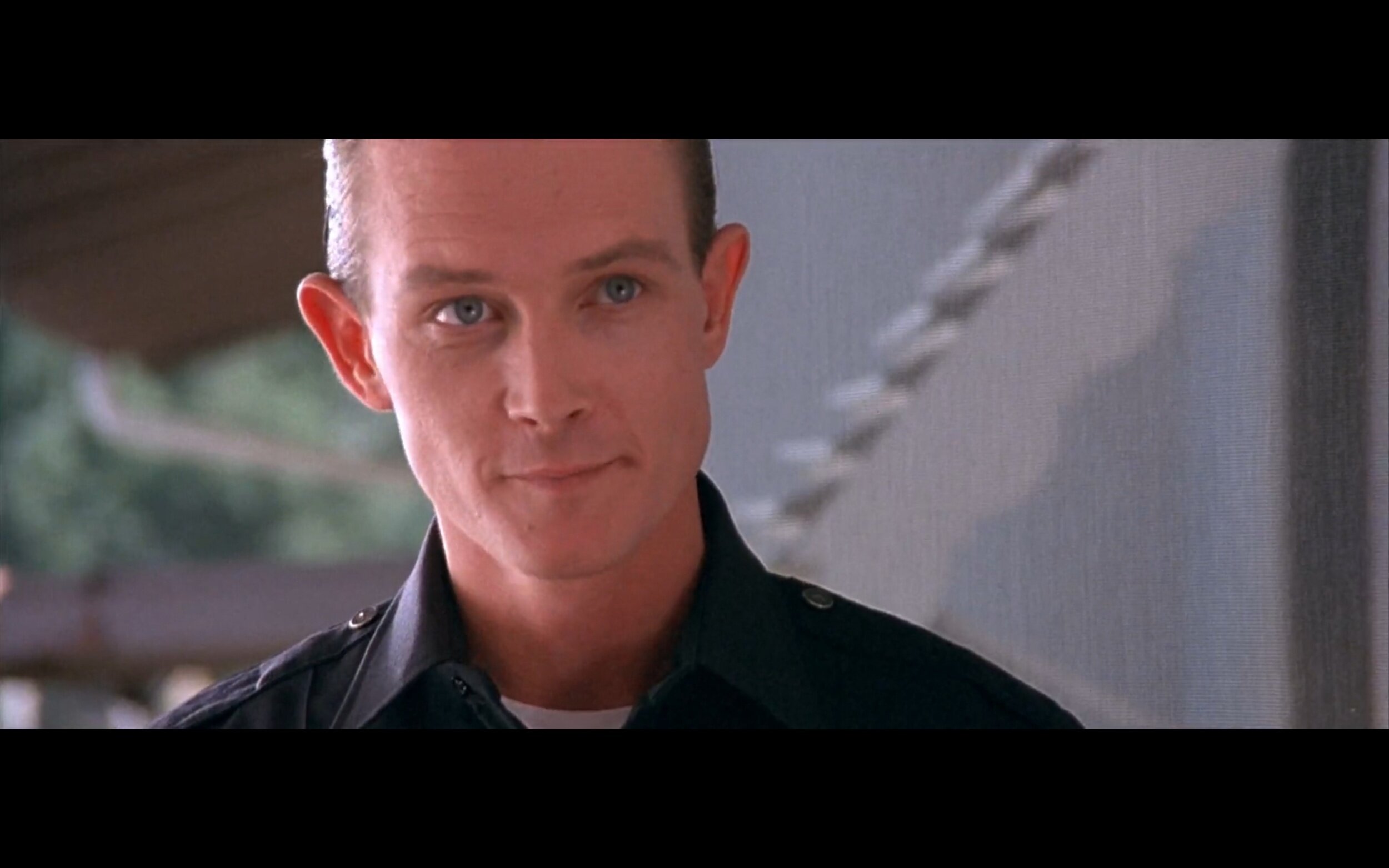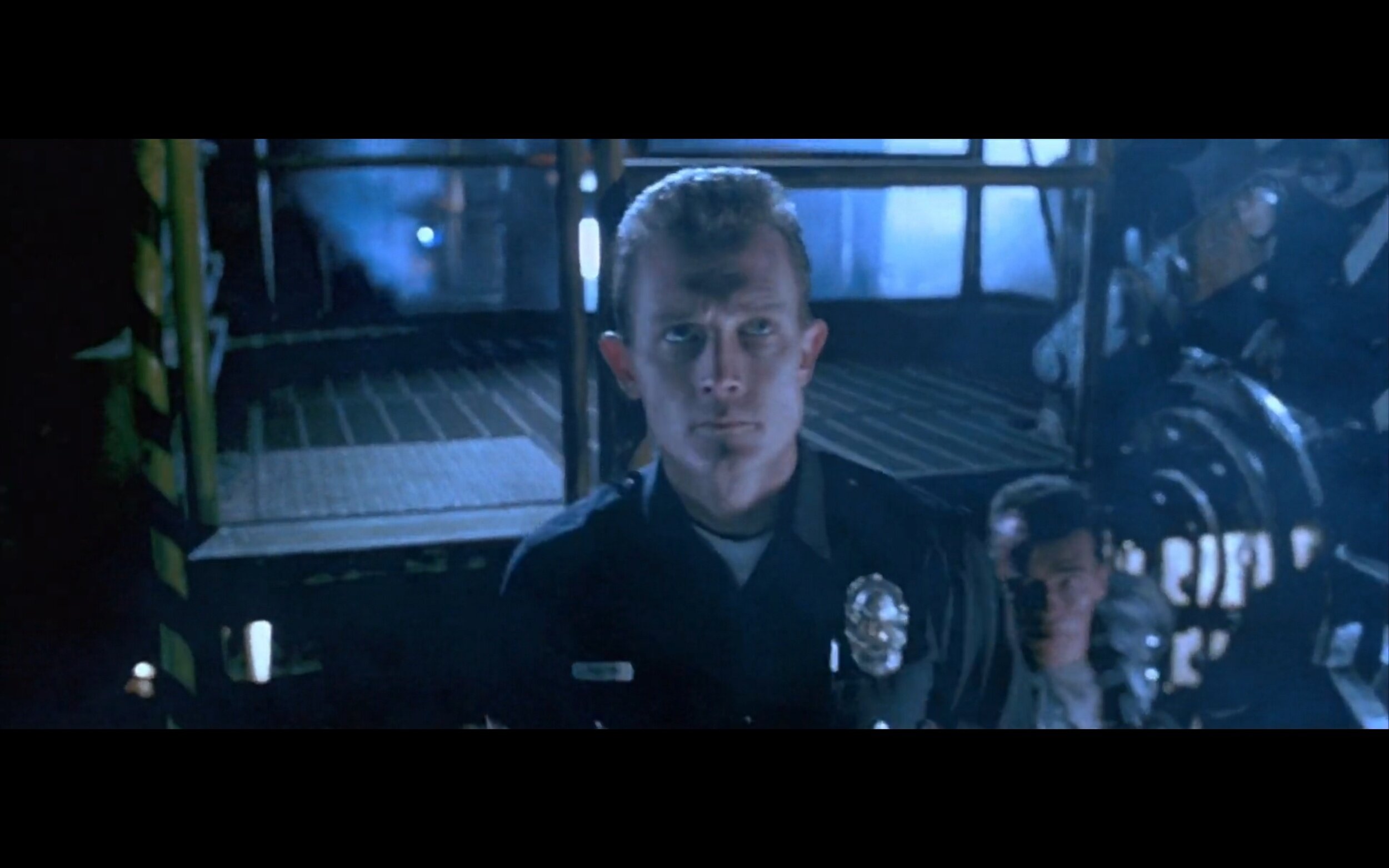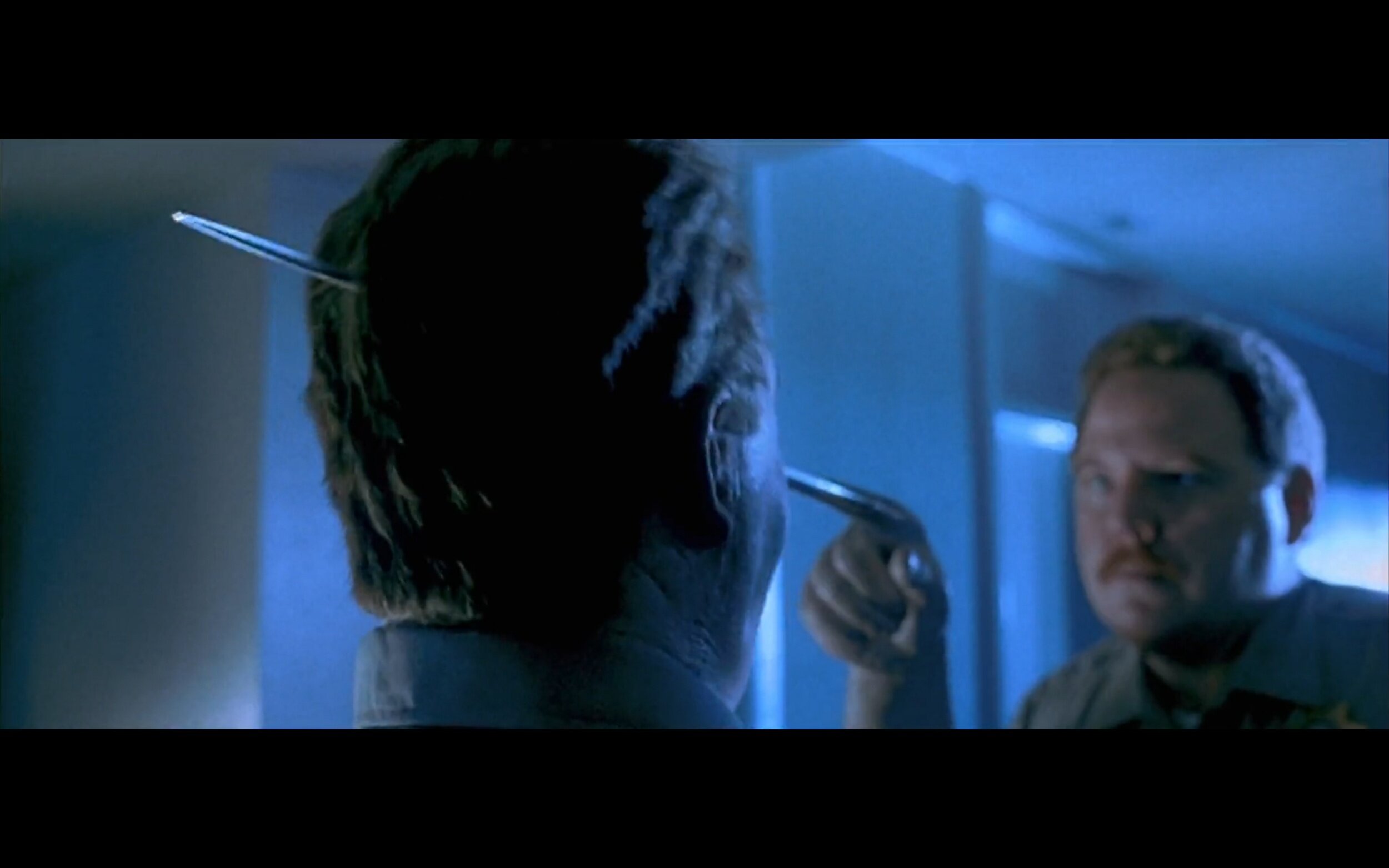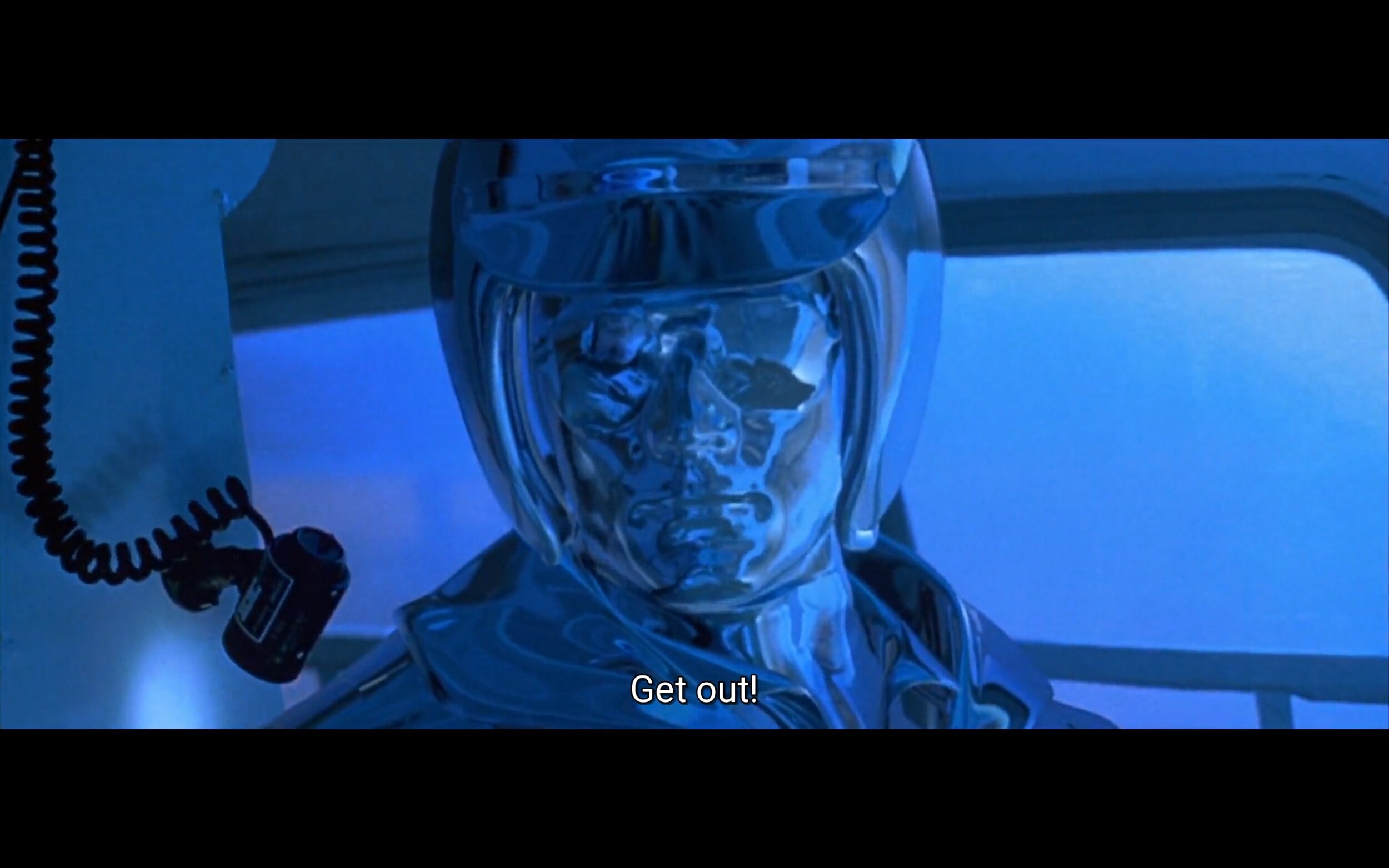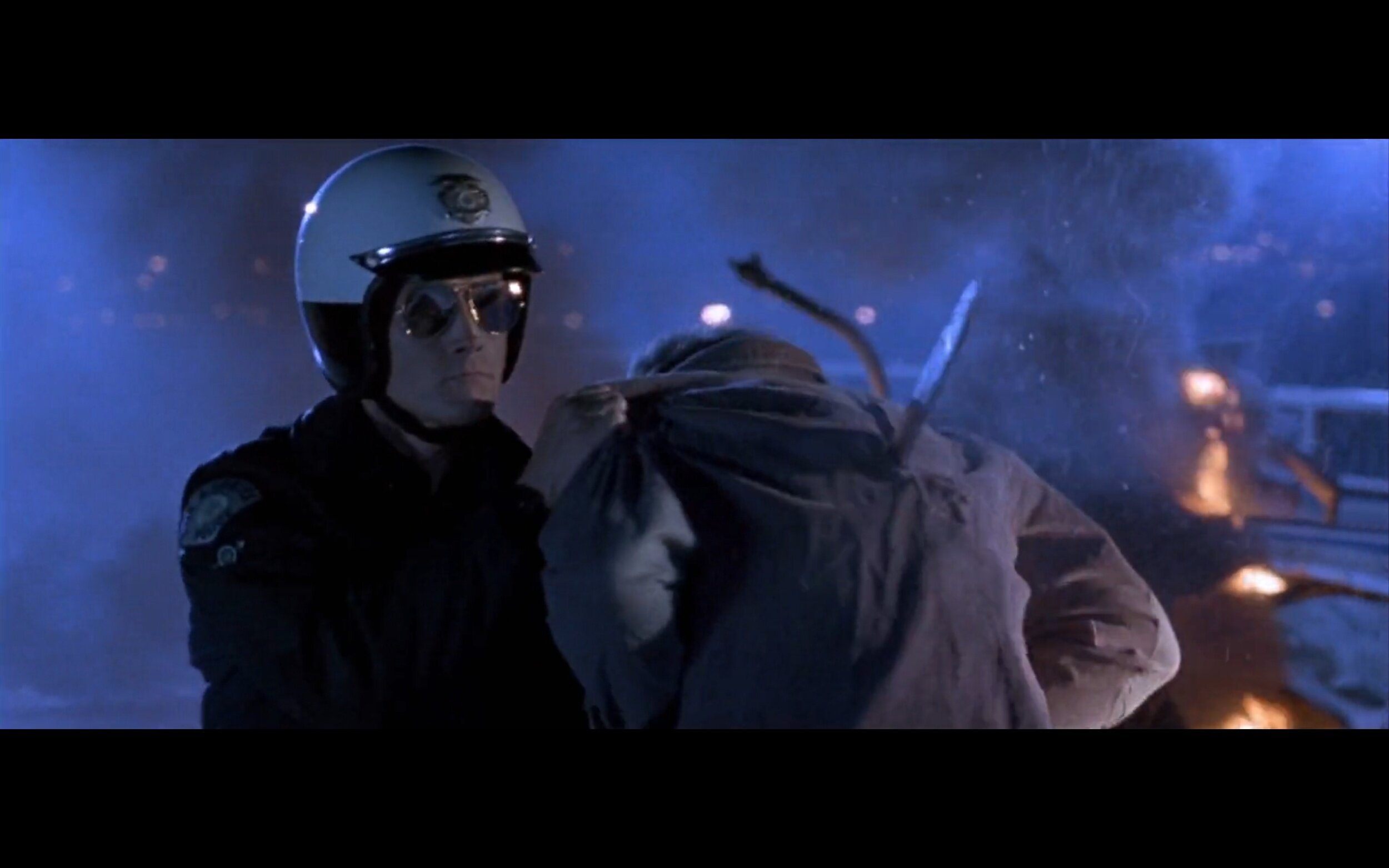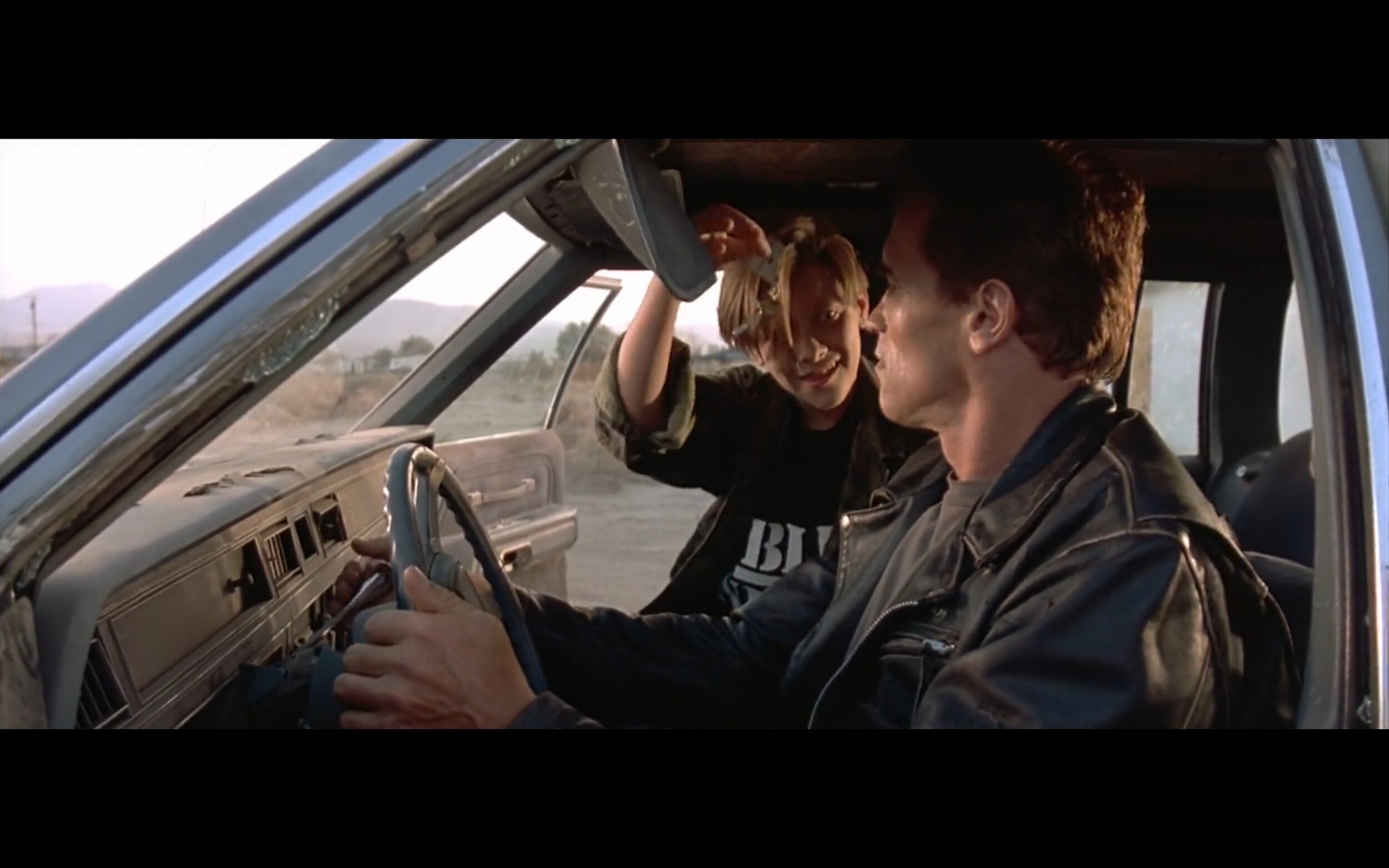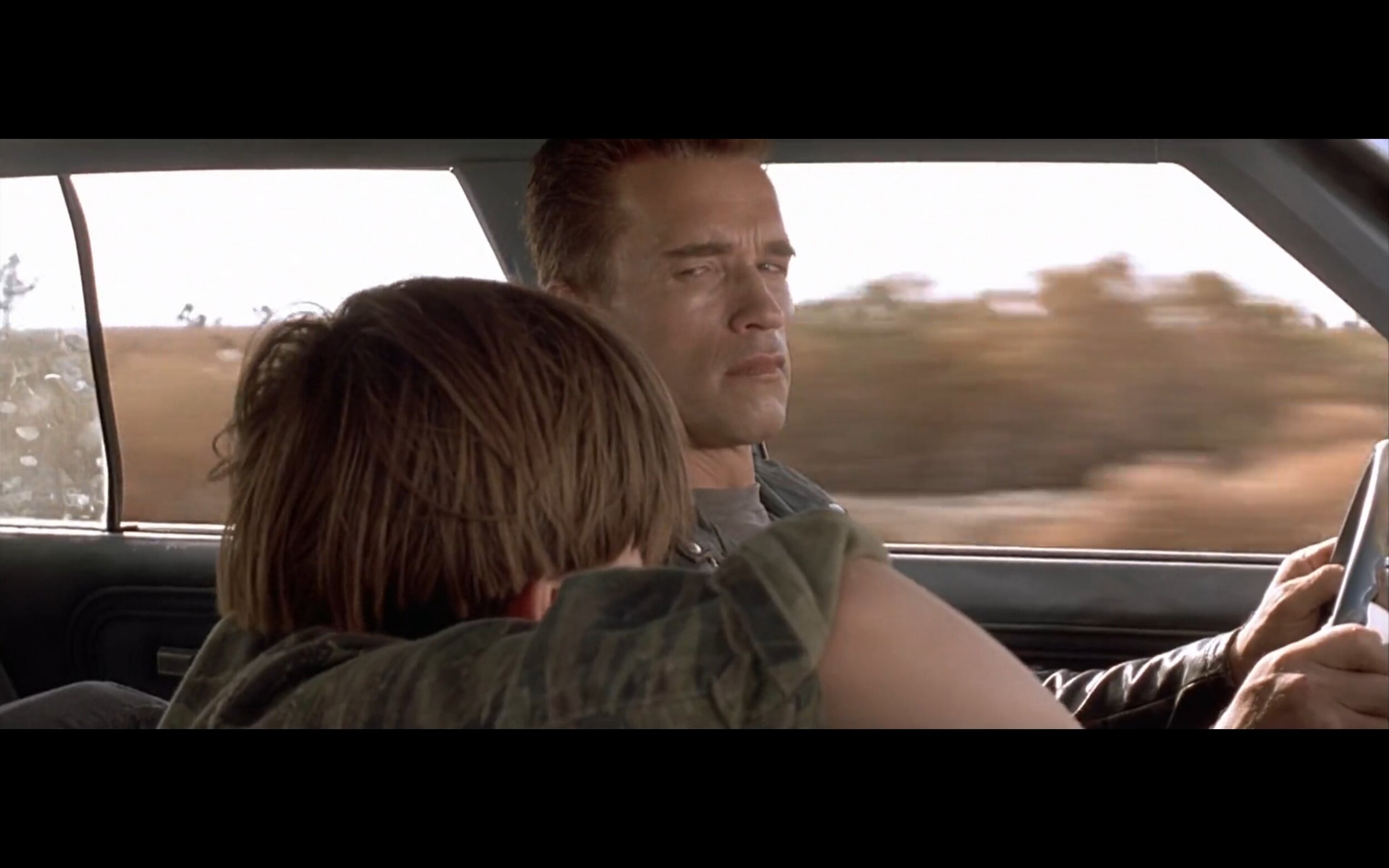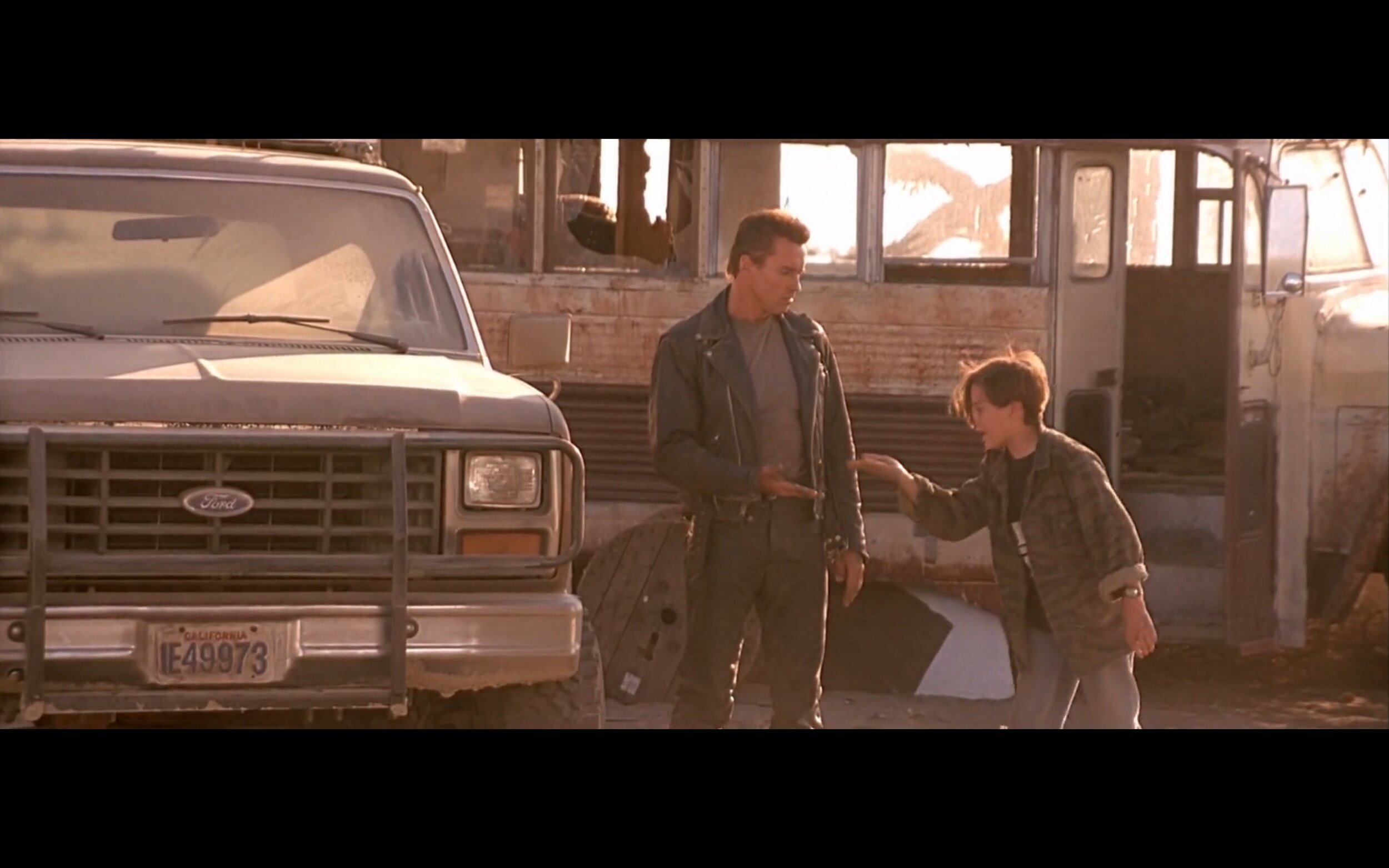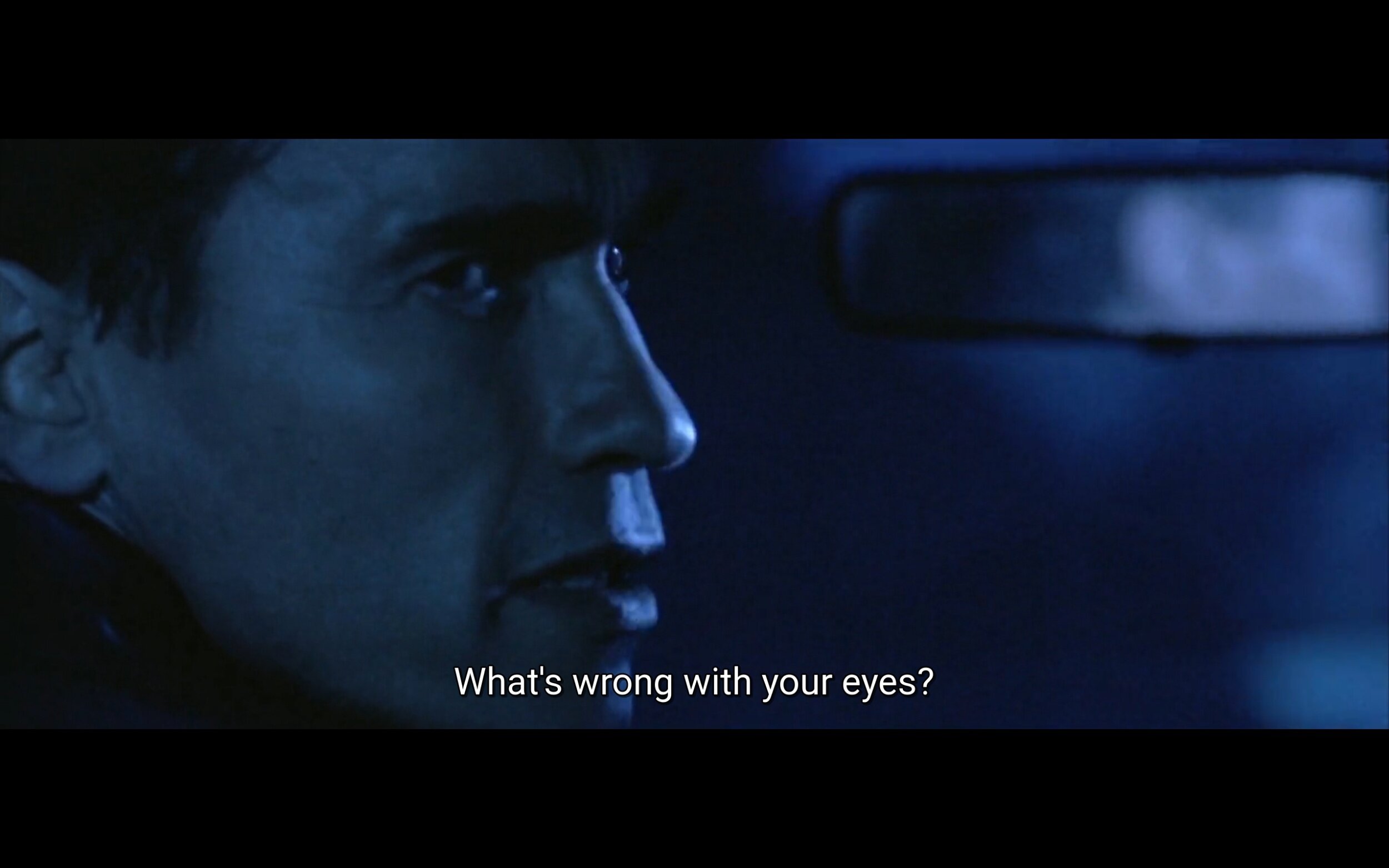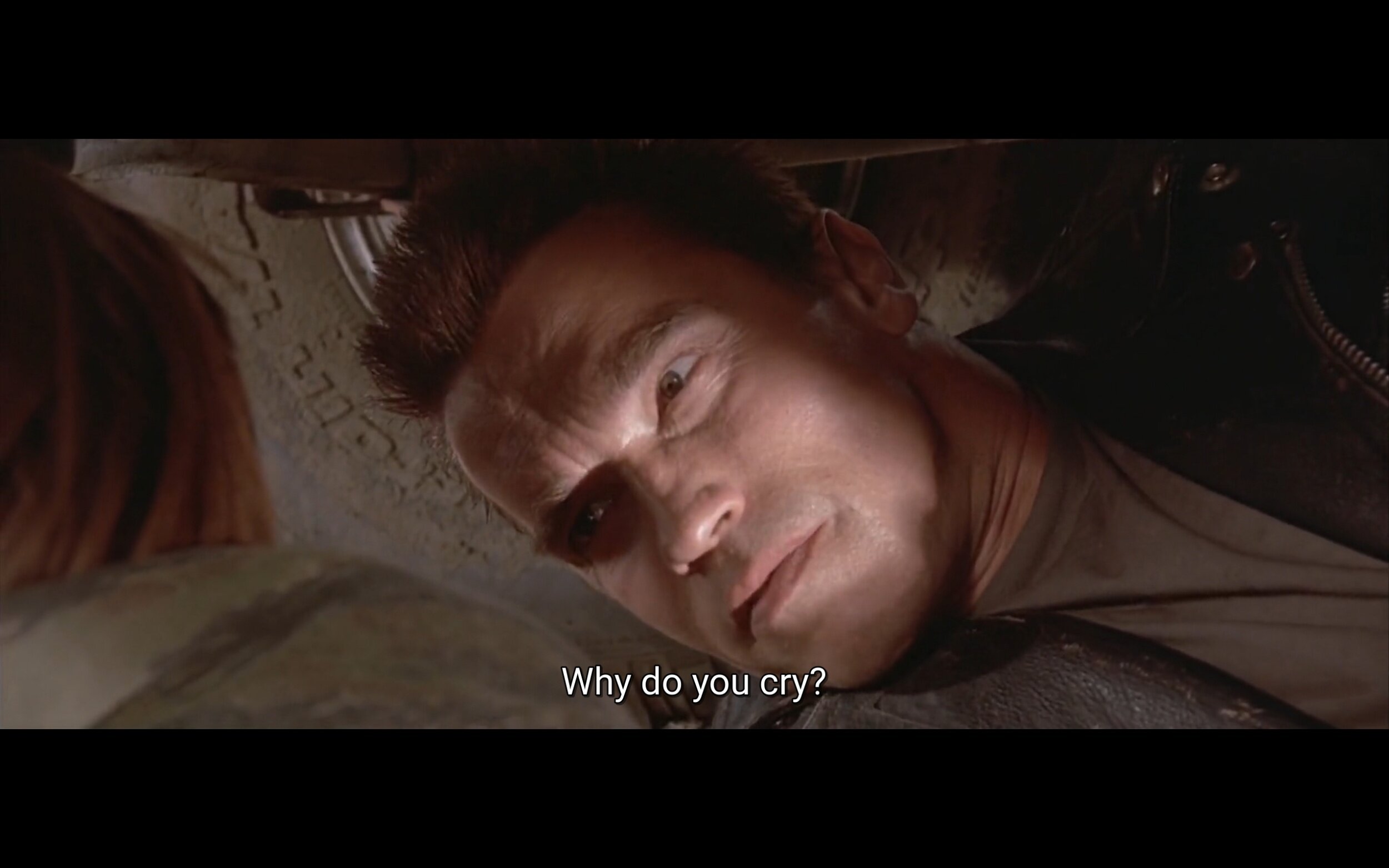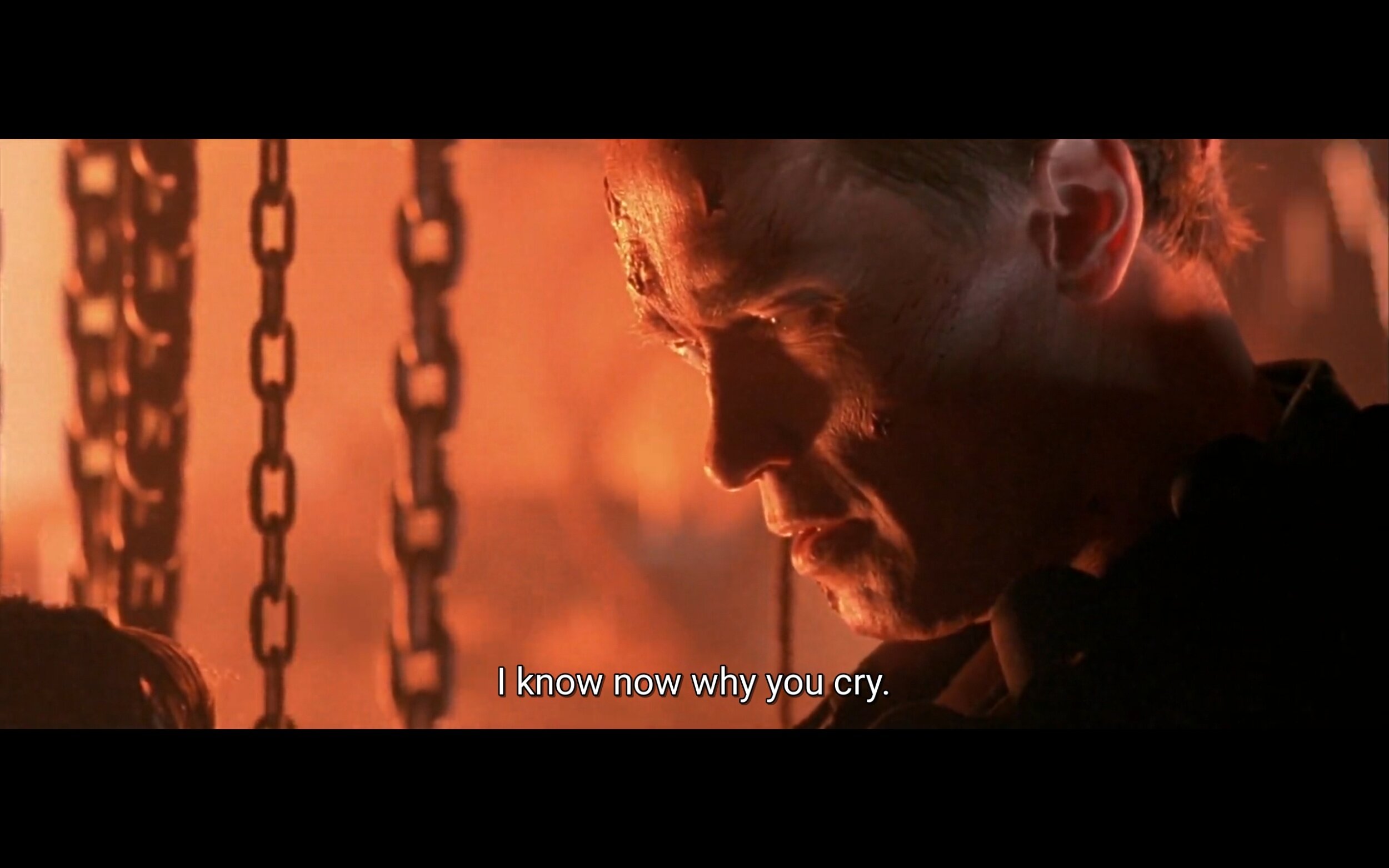Are we learning yet?
While the T1000 is immune to bullets, explosions, and extremes in temperature, it is not free from the need to learn. In fact, its lack of error and adversity ultimately contributes to its failure.
This can be seen at two specific points:
In the first scene, the T1000 realizes that someone from the resistance is also searching for John. Regardless of the opposition, the T1000 responds with a wry smile, dismissing the potential threat.
T1000: “I wouldn’t worry about him.”
In the second scene, (after a one-sided battle), the T1000 traps the T800’s arm in heavy machinery. At this point it has its foe dead to rights, yet despite knowing the tank-like nature of this model, it doesn’t destroy it. Instead, it simply leaves in search of John. In the T1000’s estimations the T800 is more of a minor disruption than a legitimate threat.
Both of these scenes show that the T1000 has a mindset predicated on superiority. Throughout earlier events, it faced little to no opposition. This means there were no mistakes, or lessons to be learned. Due to this, it maintained its methods without the need for adaptation.
The T800 however, serves as an interesting counter point. We hear in an earlier scene that both Terminators operate under the same dataset:
T800: “It knows what I know.”
However, a key difference between the two is how they interact with humans:
Like the T1000, the T800 also faced a lack of physical opposition against humans. However, on a developmental level, the opposite is true.
“Knowledge rests not upon truth alone, but upon error also.”
- Carl Gustav Jung
With the T1000, all of its interactions with people ended in either death or serious injury. For the T800 however, from the moment it acquired John, it spent every moment around people. During this period, it is repeatedly reminded of its inability to act human – specifically how it looks, speaks, and interacts with others. This gave the T800 the opportunity to experience developmental obstacles – an example of this is the T800’s repeated attempts to understand why humans cry.
Comparing the approach to learning of the two Terminators, we can clearly see which has the best outcome in the final act.
T1000
After pinning Sarah to a wall, and knowing that humans have an aversion to pain, the T1000 attempts to lure John by torturing his mother. Pain is nothing in comparison to the parent–child bond, and had the T1000 understood this, it would have ignored Sarah and hunted down John unimpeded.
This error on the T1000’s part instead gives the T800 time to return, launch its second attack and save Sarah. While the T1000 swiftly recovers, it still does not learn from its mistaken sense of superiority, and this can be seen shortly afterwards.
Having finally trapped John and Sarah on a platform, the T1000 could quickly terminate them both. However, rather than go for the immediate kill, it wags its finger, as if admonishing their act of defiance against the inevitable. This final gesture of superiority gives the T800 enough time to return and launch its final, explosive attack.
Here, we finally see the T1000 learn a lesson. Throughout the film it has been the ultimate killing machine, overcoming any obstacle; however, in its last few seconds, there is an expression on its face that is all too familiar - one of panic.
Like Skynet’s creators in the original timeline, a valuable lesson is learned, but it is learned too late.
T800
In comparison, the T800 accomplishes something that the superior T1000 couldn't. In its time with humans, through experience and error, it has gained wisdom. It has finally understood that which it was incapable of via knowledge alone: the consequences of our actions, the value of life, and the reason that humans cry.
“Learning does not make one learned: there are those who have knowledge and those who have understanding. The first requires memory and the second philosophy.”
- Alexandre Dumas
In looking at the T800’s final understanding of humanity, it sheds new light on Dyson’s argument:
Miles Dyson: “How are we supposed to know?”
The answer is, we aren’t.
We are supposed to learn along the way.

